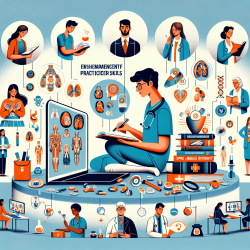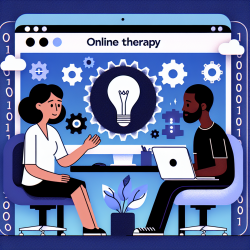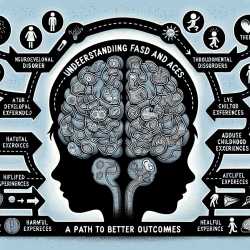Enhancing Practitioner Skills Through Mini-Med School Insights
In the ever-evolving field of speech-language pathology, staying informed and continuously improving our practice is paramount. A recent study titled "Why you should Mini-Med School: Mini-Med School as an intervention to increase health literacy" provides valuable insights that can be leveraged to enhance our skills and improve outcomes for the children we serve.
Understanding the Mini-Med School Model
The study, conducted by Shatenko, Harder, and Gair, evaluated the effectiveness of a Mini-Med School (MMS) program in increasing health literacy among elderly participants. The program consisted of a series of lectures delivered by medical students, focusing on key health topics. The results demonstrated a statistically significant improvement in health literacy across seven of nine measured scales.
Key Findings and Implications
The research highlighted several key findings:
- Statistical Improvement: There was a notable improvement in participants' health literacy, particularly in areas such as understanding health information and engaging with healthcare providers.
- Community Engagement: The MMS model effectively engaged the community, fostering a sense of empowerment and ownership over personal health.
- Educational Benefits: The interactive nature of the lectures enhanced both participant learning and the teaching skills of medical students.
Applications for Speech-Language Pathology
For practitioners in speech-language pathology, the Mini-Med School model offers several applications:
- Improving Communication Skills: By adopting a similar lecture-based approach, practitioners can enhance their communication skills, making complex information more accessible to parents and caregivers.
- Engaging Families: Hosting workshops or informational sessions for families can improve their understanding of speech-language development and therapy processes, leading to better outcomes for children.
- Collaborative Learning: Creating opportunities for collaborative learning among practitioners can lead to shared insights and improved therapeutic techniques.
Encouraging Further Research
The study underscores the importance of continued research into educational interventions like Mini-Med Schools. Practitioners are encouraged to explore similar models within their own practice settings to enhance health literacy and improve patient outcomes. By doing so, we can contribute to the growing body of evidence supporting innovative educational approaches in healthcare.
To read the original research paper, please follow this link: Why you should Mini-Med School: Mini-Med School as an intervention to increase health literacy.










